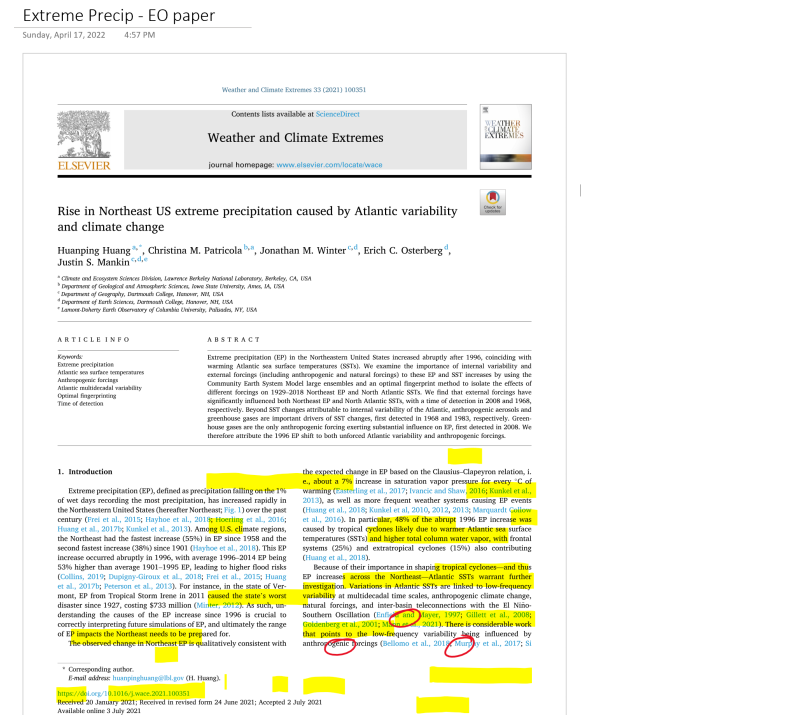
Insight into Dartmouth Academics
Coming from my high school background, there was never really a need to establish a concrete study routine because the material wasn't challenging, and my curriculum was anything but rigorous. I quickly learned that this dynamic would change when I started classes at Dartmouth back in the fall of '21. Just a gentle disclaimer: it's easy to for the mind to get clouded if I were to throw around phrases like "Dartmouth classes are harder / more challenging, therefore I needed to have a study routine." That's not what I want to convey. While the coursework was certainly more difficult, it was also… different. I realized within my first few weeks here that this would be a different learning experience. For example, I had never really been in a classroom where my input was necessary. Discussion based classes at Dartmouth were a breath of fresh air. You learn from everyone in the classroom instead of the instructor. You also learn a lot about yourself in the process and where your understanding of the material is lacking. The lecture classes were also different; they required me to gain a baseline knowledge of the material and then build on it on my own time. I never had to do this before; it was new. The point being, I've picked up on things, I believe, a first-gen or low income student could benefit from coming from a similar background.
Time in the classroom is valuable, but it's only the foundation.
First off, just show up to class and try your best not to miss lectures. You only have about 20-30 lectures each class per Dartmouth term, so each one is valuable; don't miss/skip class! That being said, your learning experience merely begins in the classroom. The real learning takes place away from the classroom, when you spend time self or group studying the material.
Take note of, attend, and keep attending OFFICE HOURS.
I had no idea what office hours were before coming to Dartmouth, but the FYSEP community educated me! A lot of the success I've had in the classroom has stemmed from attending office hours – an allotted amount of time given by the professor to discuss material in the classroom that you need additional support with. For instance, I'm in a math class, Math 13, which requires a lot of time outside of class to be successful. When I attend office hours, we can go over tricky problems and talk with my fellow peers about the material as well. Office hours are golden, please attend them!

Be attentive and use the "smarter not harder" study approach!
I feel that I really need to stress this point, because it took me a while to understand what I'm about to say to you. Let me give you a "hypothetical" example: the professor throws up lecture slides of some important material and begins giving the lecture. The professor states they will provide you with those same lecture slides after class for additional study. If this is the case, I would strongly recommend being attentive and engaged in the class rather than trying to copy down what's on the lecture slides. Give your full attention to the professor and participate in class; they may say things that are even more important that aren't on the lecture slides!
Use the power of technology to your advantage!
I had never considered taking electronic notes before coming to Dartmouth, and I'm so glad I've developed that habit. Personally, I like Microsoft OneNote for my note-taking in class. With a stylus, you can move text around, draw graphics with ease, and it's pretty hard to be disorganized with electronic notes. It also helps you pack a lot lighter when walking across campus. If you have a ton of notebooks, pens, pencils, sharpeners, etc., it's a lot more cumbersome than if you just had a laptop/tablet and a stylus. Just food for thought.

Find some reliable "study buddies!"
It's been such an amazing experience to collaborate with some of the brightest students I've ever met. It's not necessarily about putting yourself around them to work together to get the best grade, but that's an inevitable side effect of gaining new perspectives on a problem and truly valuing each other's input. Different perspectives around the same issue makes solving the problem a lot easier. Finding study partners has truly helped me solidify my understanding of some complex material!

Of course everyone learns differently and perhaps not everything I said here resonates with you, and that's okay! The point is, make sure you're working hard early to identify what study patterns and habits work for you. This may a look a bit different than what I've stated, but these are things I wish I'd known prior to coming to Darty. Can't wait to see what journey you take!
















